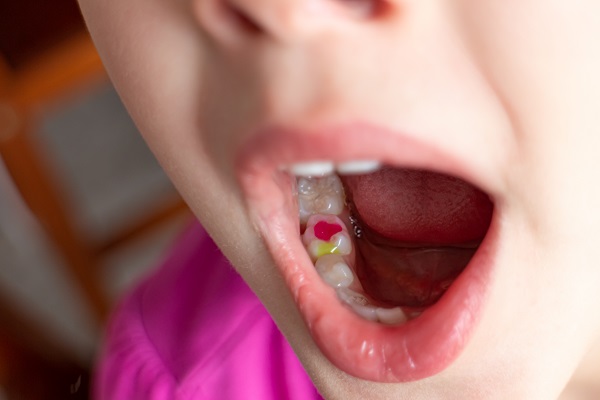Who Should be Concerned about Oral Cancer?

In short, anyone can have a form of oral cancer. However, individual lifestyle choices can also significantly impact and increase the risk of oral cancer. When a dentist checks a patient for oral cancer, they are looking at the entire oral cavity.
The oral cavity includes a person's lips, cheek lining, gums, the front of the tongue, beneath the tongue, and the roof of the mouth. Also included is the part of the mouth that begins at the roof of someone’s mouth and reaches to the back of the throat, as well as the back part of the tongue.
What are the signs of oral cancer?
One of the best things a person can do is be aware of the signs and symptoms of oral cancer. By having this knowledge, one can inspect their mouth and bring attention to any areas of concern with their dentist.
Below we will outline some of the signs that someone can be aware of when it comes to symptoms of oral cancer, and be better equipped to bring up the subject with their dentist.
Signs and symptoms of oral cancer
On any of the surfaces of the oral cavity, if there is a sore or irritation that does not seem to go away, then this is an indication that oral cancer may be forming. If there are any red or white patches on these areas of the mouth and oral cavity then this also might be a sign of oral cancer beginning to form.
If someone is experiencing any pain, tenderness or numbness on or around the mouth or lips, this is another common symptom of the formation of oral cancer along with a lump or thickening of certain areas in the mouth.
If someone is experiencing any difficulty chewing, swallowing, or speaking when moving their tongue or their jaw this can be an indicator of oral cancer. Lastly, another symptom is if someone notices a sudden change in the way their teeth seem to fit together when closing their mouth.
Who is at a greater risk of having oral cancer?
In recent years, research has shown that certain factors can make a person more likely to have the formation of oral cancer. Men, for instance, are twice as likely to have oral cancer than women. Along with people who smoke and drink an excessive amount of alcohol, people older than 50 are at the most risk of having an oral cancer form.
Can a dentist detect oral cancer?
The most common question that we receive at our dental office from patients that are concerned about oral cancer is if dentists are the best type of doctor to detect oral cancer. In short, the answer is yes. Because dentists have the most knowledge of the oral cavity, they are equipped and trained to see the signs and symptoms of oral cancer.
The best time that this happens is during a person's bi-annual cleaning and check-up. During this time a dentist will always ask about any changes in your medical history and if you happen to have noticed any unusual symptoms of oral cancer. After this quick follow-up, the dentist will begin their exam of a person’s oral cavity to detect any possible trouble spots. This will include your lips, tongue, cheeks, and roof of the mouth.
Have more questions about oral cancer? We can help.
Contact our office at any time, and our trained staff can answer any questions you may have about oral cancer. Schedule a consultation and cleaning to have the dentist check your mouth for any signs of oral cancer. Contact us today!
Request an appointment here: https://vsndental.com or call VSN Dental PC at (732) 795-6073 for an appointment in our Manalapan office.
Check out what others are saying about our dental services on Yelp: Oral Cancer Screening.
Recent Posts
If you have unusual spots in your mouth, your mind may immediately jump to oral cancer. Leukoplakia is a disease caused by surplus cell growth, resulting in the appearance of patches or lesions in the oral cavity, usually on the gums and cheeks. Although their appearance can vary, the sores are typically white or gray…
Gingivitis is a form of gum disease that causes swelling where the gums meet the teeth. It is a serious condition that should be treated immediately once it has been identified to prevent worsening of the disease as well as possible tooth loss. Gingivitis can occur when plaque is not properly removed and starts to build…
Most people know about cavities, but what about gum disease? Both of these issues can affect your oral health, but people often overlook gum problems. There are varying levels of severity when it comes to this condition. Even minor bouts with it can cause pain and discomfort. If you do not treat it, you could…
Gum disease is one of the most common dental diseases in the modern world. According to CDC, more than 47 percent of American adults have gum disease. Gum disease is caused by bacteria growing below the gum line. This results in the gums being pulled away from the root of the teeth. If left untreated,…


